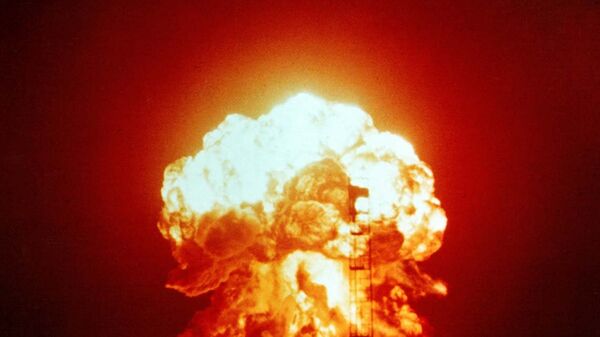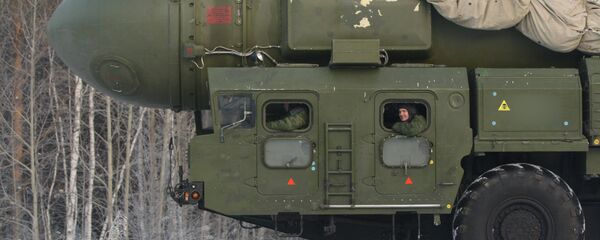The story began when reports surfaced detailing the contents of the Trump administration's planned Nuclear Posture Review (NPR). The document, released by the White House every four years, is meant to assess the nuclear capabilities of the US and any changes that need to be made in their doctrine.
The NPR has yet to be approved by Trump, but it sparked controversy for its hawkishness and its enthusiasm to expand the American nuclear arsenal. The document specifically names China and Russia as "nuclear policy problems" and advises the US to bolster its atomic power projection in Eastern Europe with technology such as sea-launched cruise missiles.
Naturally, Russian news outlets turned their attentions to a US promise to bolster nuclear strength along Russian borders. The NPR claims that the US' nuclear weapons may be used if the US feels that its interests and those of its allies are threatened — a pretty low standard for starting a thermonuclear war, as nuclear weapons are usually seen as options only to protect against existential threats.
At this point, Miss Molly McKew threw her hat into the ring. "Russian nuclear doctrine includes a description of when they can nuke their own people," McKew tweeted on Friday in a furious response to a comment from Russian journalist Igor Korochenko that the new NPR was "insanity."
Russian nuclear doctrine includes a description of when they can nuke their own people. They want to talk about madness? Russian madness is the spark of madness driving the world mad because we've decided not to confront it. https://t.co/rjlqrvt9Sj
— Molly McKew (@MollyMcKew) January 13, 2018
McKew is making quite the claim. Of course, as an expert, she must know that the stronger a statement, the stronger the evidence to support it must be — yet she did not provide an iota of proof of her allegation.
Sputnik will give her the benefit of the doubt, though, and investigate the claim ourselves. Our first stop will be a 2016 analysis of Russian nuclear doctrine from the Center for Strategic and International Studies (CSIS). The report argues that Russia's bar for using nuclear weapons is actually higher than many other nuclear states, including the US.
While the American doctrine posits that atomic bombs could be used to defend US interests, Russia would only launch a nuclear strike in response to existential threats to the Russian state: that being other weapons of mass destruction or mass use of conventional weapons.
The report, from a Western think tank that generally takes a dim view of Moscow, makes zero mention of a Russian doctrine to nuke Russian citizens. On the contrary, it criticizes the Russian nuclear doctrine as overly vague — and therefore not specific enough to include the circumstances under which Moscow would do the unthinkable and turn its nuclear arsenal on its own people. Even critics can find no truth to McKew's charge.
Hard as Sputnik looked, we could find no sources suggesting that Russian nuclear doctrine includes a tenet explaining when Moscow can nuke its own people. The closest we could find is the 1954 Totskoye nuclear exercise, in which the Soviet Union tested a nuclear weapon, then sent Red Army soldiers to the site to see how the aftermath of the blast would affect them.
Horrifying, to be sure — but in those days, the effects of nuclear fallout on the human body were still poorly understood. The US conducted extremely similar tests themselves — eight of them, to be exact: the Desert Rock tests from 1951 to 1957. When the adverse health impacts of such tests were better understood, they stopped.
A harsh critic of the Russian government, journalist Aric Toler, was so shocked by the "expert's" claims that he slammed McKew on Twitter. "'The Russian information warfare expert' is waging really crappy info war on Russia by completing inventing sections in the Russian nuclear doctrine," Toler wrote, linking to the Russian nuclear doctrine to prove it.
The Russian "information warfare expert" is waging really crappy info war on Russia by completing inventing sections in the Russian nuclear doctrine. Here's the Russian military doctrine — find anything that you could even creatively interpret like this. https://t.co/gPWTzpVThv pic.twitter.com/3qwTBW7GpS
— Aric Toler (@AricToler) January 15, 2018
When even your ideological allies are calling your allegations unfounded and hare-brained, that's probably a good sign that you should slow down, take a deep breath, and cite your sources.





